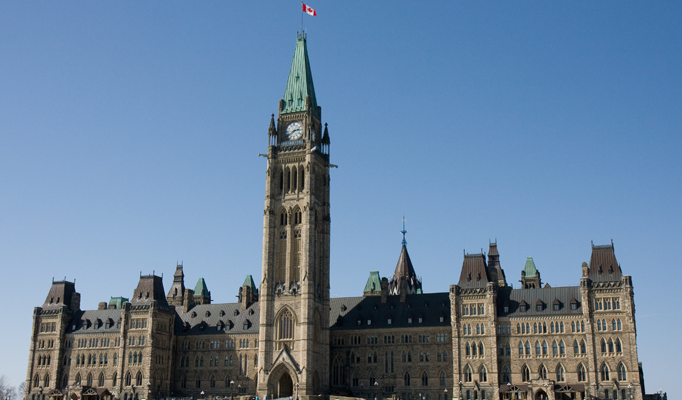
The First reading of the 104 pages of Bill 63, during the First Session of Canada’s 44th Parliament on February 26, 2024, seemed well-intentioned. The Bill purported to amend the Criminal Code, the Canadian Human Rights Act, and An Act respecting the mandatory reporting of Internet child pornography by persons providing Internet service…”. The problem with legislation is always in the hidden agenda behind it.
There are seven areas the bill addresses.
a. Intimate content communicated without consent
b. Content that sexually victimizes a child or revictimizes a survivor
c. Content that induces a child to harm themselves
d. Content used to bully a child
e. Content that foments hatred
f. Content that incites violence
g. Content that incites violent extremism or terrorism
It all looks good on the surface, right?
In a presser, Minister of Justice, Arif Virani, said “I am terrified of the dangers that lurk on the internet for our children.” We all agree. Carol Todd, whose 15-year-old daughter Amanda committed suicide after intimate images of her were shared online, thinks the legislation may have helped to spare her daughter. Michael Geist, University of Ottawa law professor, sees other countries moving in this direction and says “I think it does better facilitate some of the shared cooperation and some of the ability to enforce.”
The issue is not the pornography but the fact that it is deliberately tied to hate speech.
David Fraser, a privacy lawyer who teaches on internet and media law at Dalhousie University, doubts that the legislation is charter compliant. He thinks that the new digital commission designed to oversee the legislation outside the courts has “stunning and likely unconstitutional powers.” He focuses on the Digital Safety Commission as regulator, the Digital Safety Ombudsperson as advocate, and the Digital Safety Office as a bureaucracy. He says that the legislation which appears to be about protecting children is often “a pretext for regulatory actions which lead to overreach.”
Christine Van Geyn, Litigation director of the Canadian Constitution Foundation which fights for fundamental constitutional freedoms, sees the first part of the bill as “designed to inoculate the legislation against the second part which is online hate.” The definition of hatred is “highly subjective.” Instead of hate being an aggravating offense, as in the past, this bill makes it a separate offense which could carry a life sentence. And worse yet, the bill provides a “preventative criminal restraint on suspected future speech… If the attorney general and a judge agree that someone might commit hate speech in the future than that person can be subject to major restrictions on their liberty. This might include imprisonment or house arrest if resisted.
In 2014, Van Geyn points out that the Supreme Court said that “hatred is only the most extreme manifestation of the emotion captured by the words detestation and vilification and that only that type of speech can be outlawed without violating section 2b of the charter which guarantees the right of freedom of expression.” Can a sermon on what it means to be male or female be considered hatred? Can a message speaking against gender reassignment surgery violate the intent of this law? Can a speech advocating the rights of parents over their children open one up for complaint?
Fraser says that “any Canadian can submit a complaint to the commission which can remove content during an investigation. In a civil court, if the commission thinks it has reasonable grounds to believe the content is harmful it must be permanently removed.” The commission has the power to compel persons to provide any written or oral evidence – “or any other documents the commission considers necessary.” The group can take evidence through oath and affidavit, “even if that evidence would be inadmissible in a court of law.” Can we expect an avalanche of frivolous complaints from persons who embrace values different than ours?
With the Digital Safety Commission functioning outside due process and able to enforce legislation on the basis of “a reasonable grounds to believe,” with no oversight or right of appeal, it leaves some with little trust on what can happen. Especially, because of the conflict between values around children and gender issues.
Online platforms are given the responsibility of policing their content and this puts content creators at the mercy of social media providers. The legislation hopes for self-policing among individuals and organizations but the fines of $10 million or 6 percent of global revenue against media platforms may make providers overly sensitive to what might be viewed as hate speech. The balance of privacy rights, users’ expression, and the operator’s legal obligations, need further examination. Public guidelines and standards of conduct will have to be developed.
Todd says, “even if we have an act, it doesn’t mean that as adults, as Canadian citizens, as parents, as educators, as law enforcement, that we can stop talking about it and teaching others and educating.”
The Evangelical Fellowship of Canada, after studying the bill has concluded: “We have serious concerns and reservations about the inclusion of certain types of alleged hate speech within Part One of the Bill, some of the proposed amendments to the Criminal Code in Part Two and in particular, the re-enactment of s. 13 of the Canadian Human Rights Act in Part Three. Because of the risks to freedom of expression, those sections require particularly careful consideration of freedom of expression, significant amendments, and should proceed much more slowly, if at all.”

Leave a Reply